
China’s Assertive Influence: BRI, GCI, and GSI Await PM Dahal’s Visit
As the government led by CPN (Maoist Center) takes charge in Nepal, the frequency of high-level visits between Nepal and China has increased significantly. The activities between the two countries have intensified since Pushpa Kamal Dahal ‘Prachanda,’ the Chairman of the Maoist Center, assumed the role of Prime Minister. However, these engagements have been halted temporarily due to the ongoing pandemic.
Since Prachanda’s appointment as Prime Minister, the Pokhara Regional International Airport, constructed with Chinese loan investments, has been inaugurated and is now operational. Other collaborations have commenced in areas such as road networks, industrial parks, petroleum exploration, and railways. However, the Chinese side is associating these projects and programs with their ambitious plans, such as the Belt and Road Initiative (BRI), Global Civilization Initiative (GCI), and Global Security Initiative (GSI). The Nepali government has publicly denied any such association, even in parliament.
China’s Ambassador to Nepal, Chen Song, publicly stated that the Pokhara Airport falls under the BRI, while the Dragon Boat Race is linked to the GCI. The Nepali Foreign Minister, NP Saud, responded to these claims. Furthermore, China mentioned in invitation letters to diplomats and special individuals from other countries that the Dragon Boat Race program is a part of the GCI, without consulting the Nepali side. Similarly, the Pokhara Airport is referred to as a BRI project. Moreover, the industrial park under construction in Damak is also being called a BRI project.
These indications suggest preparations for Prime Minister Prachanda’s planned visit to China in September. High-level government sources claim that during the visit, agreements will be made to align the projects claimed by China under the “flags” of BRI, GCI, and military and security cooperation.
According to sources, a military team led by Chief of Army Staff Prabhuram Sharma will visit China either before or immediately after Prime Minister Prachanda’s visit. The team aims to reach an important agreement on arms, military vehicles, ammunition production, and supply materials for the army, potentially connecting them under China’s Global Security Initiative.
Sources also indicate that internal discussions have begun to address the interest adjustment of the Pokhara Airport, which was constructed with China’s loan. Agreement on high-level visits is anticipated as other projects under the BRI have been implemented.
Analysts suggest that Nepal needs to be clear with China on all issues, as ambiguity may lead to future challenges. They warn that failing to clarify these matters in a timely manner could result in diplomatic and strategic traps for the country.
Ram Karki, a leader from the CPN (Maoist Center), has expressed that Chinese President Xi Jinping’s Belt and Road Initiative (BRI) is not in Nepal’s interest. Speaking at a program organized by Tribhuvan University and the Asian Research Center (SINAS), he highlighted that Nepal is becoming entangled in a geopolitical trap and urged foreign experts to take the initiative in formulating a foreign policy to avoid it. He emphasized the need for extensive discussions and debates to achieve clarity on these matters.
In Nepal, the Millennium Challenge Corporation (MCC) project is currently in the implementation stage, while none of the projects under the BRI have progressed thus far. Experts in the diplomatic field believe that both the United States and China are pressuring Nepal to implement these projects for their own interests. Their analysis indicates that Nepal risks falling into the geopolitical clutches of major powers.
Bishnupukar Shrestha, Nepal’s Ambassador to China, has stated that the Global Civilization Initiative (GCI) is currently in the study stage. GCI aims to unite world civilizations, and Nepal is currently studying this concept. Shrestha emphasized that the Government of Nepal will engage in discussions and make decisions regarding GCI.
During a recent visit by National Assembly Speaker Ganesh Timilsina to China, Chinese officials requested Nepal’s participation in the Global Security Initiative (GSI) and GCI. Chinese National People’s Congress (NPC) Standing Committee Chairman Zhao Leji extended the invitation during a meeting with Timilsina at the Great Hall of the People in Beijing.
Previously, China’s Ambassador to Nepal, Chen Song, claimed that the Pokhara Airport is a part of the BRI project. The ambassador made this controversial statement during the first international commercial ship landing event at Pokhara International Airport. However, in reality, Nepal constructed the Pokhara International Airport through a loan from a Chinese bank. Nepal borrowed 22 billion rupees from China Export-Import (Exim) Bank to finance the project, which carries a high interest rate.
The Damak Clean Park in Jhapa district is another project that has been stalled by the Chinese side. This park, intended to improve the country’s economic condition, create employment for one lakh people, and revolutionize the industrial sector, has been stagnant for a long time. Despite eight years passing since land acquisition for the construction of the park began and three years since the foundation stone was laid, the work has not made progress.
The government initiated the land acquisition process for the industrial park through a cabinet decision in 2016. However, only half of the required land has been acquired so far. The investment board approved a 64 billion rupees investment for the first phase of the park’s construction in 2019. The Chinese company responsible for the project, Lhasa Economic and Technology Development Zone Jingping Joint Construction Project, has applied for investment approval and conducted a detailed feasibility study. However, the work has stalled due to issues related to compensation, corruption, and irresponsibility on the part of the Chinese side.
The controversy surrounding the project primarily stems from compensation disputes. The Damak Clean Park Struggle Committee has raised concerns about the inadequate compensation provided to landowners during the acquisition process. The committee has submitted memorandums to various authorities, urging them to address the issue. The struggle committee demands transparency in the project, the formation of an all-party committee for park operation, resolution of compensation disputes through negotiations, and the disclosure of information regarding the park’s purpose and reality.
Despite several completed processes, such as the signing of agreements and approvals, the Chinese side has not been in contact and no progress has been made. The project’s construction cost is estimated at 336 billion rupees, and it aims to be a state-of-the-art industrial park in terms of work, leisure, entertainment, and culture.
The broader context of these developments involves the challenges faced in implementing projects under the BRI. Import and export of goods between Nepal and China have encountered obstacles, with containers carrying Nepalese goods being delayed at border crossings. The implementation of the grant announced by Chinese President Xi Jinping during his visit to Nepal has yet to be formalized through an agreement. The diplomatic field suggests that both the Nepal and China are pressuring to implement projects based on their respective interests, putting Nepal at risk of geopolitical entanglements.
As the upcoming visit of Prime Minister Prachanda to China approaches, Nepal faces the task of clarifying its positions and concerns with China on various issues. The nation’s leaders must navigate the delicate balance of maintaining diplomatic relations while protecting national interests and sovereignty.
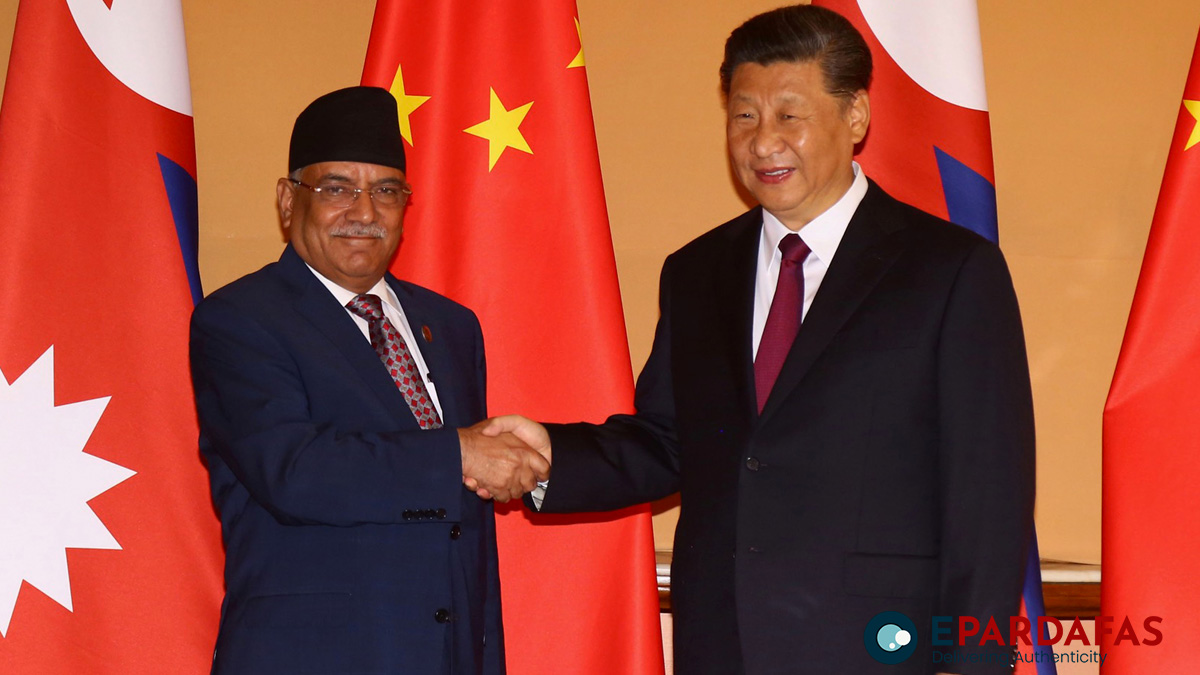

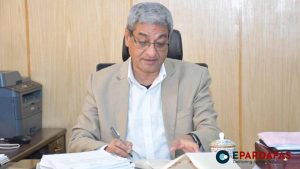

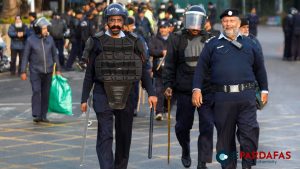
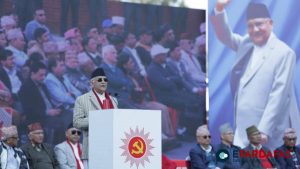






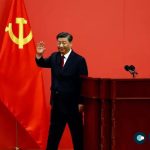
Comments